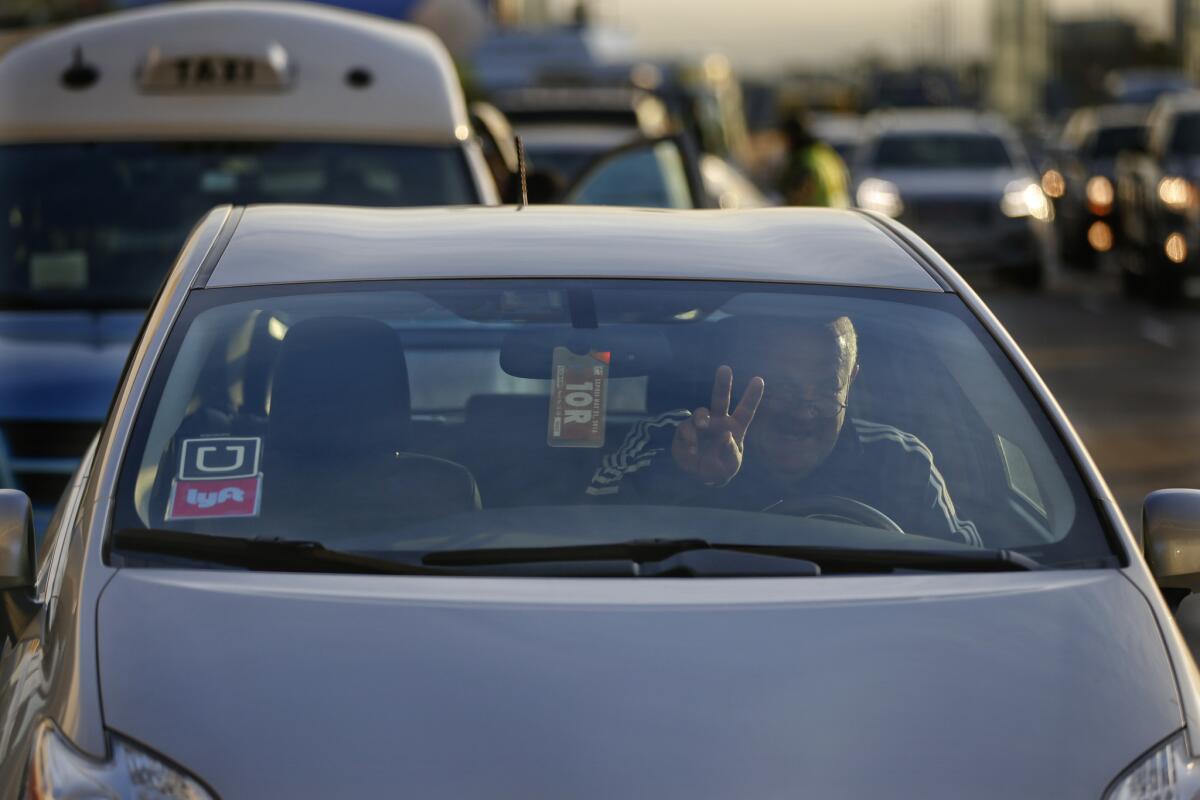Uber and Lyft drivers are safer than the average American driver, according to new report

- Share via
Reporting from San Francisco — Drivers for ride-hailing services such as Uber, Lyft, and HopSkipDrive are generally safer than the average American driver, according to a new study by automotive analytics firm Zendrive and research firm Aite Group.
The research compared data collected anonymously from the smartphones of about 12,000 ride-hailing drivers across the U.S. to millions of data points from trips taken by average American drivers and found that ride-hailing drivers were less likely to speed, drive aggressively or fumble with their phones during a trip.
Zendrive uses a smartphone’s sensors to detect movement such as speeding, sharp turns and hard braking. The company doesn’t work directly with services such as Uber and Lyft, but a number of apps, such as Sherpashare (which is primarily used by ride-hailing drivers for services like Uber and Lyft), HopSkipDrive, eDriving and a variety of navigation apps use Zendrive’s technology to monitor ride safety.
See more of our top stories on Facebook >>
Data from a million trips completed by ride-hailing drivers from June to August 2015 showed that 30% involved speeding, compared with 41% for other drivers. Ride-hailing drivers were recorded fumbling with their phones for 23 seconds during a typical 15-minute trip, compared with 35 seconds for other drivers.
Ride-hailing drivers didn’t fare as well when it came to hard braking, though, with 33% of ride-hailing trips involving at least one hard brake, compared with 29% for ordinary motorists.
Factors that may have influenced driver behavior, according to the researchers, include the fact that ride-hailing drivers are rated after every trip and that, because they depend on their vehicles for their livelihood, they may have incentive to drive more cautiously to reduce wear-and-tear on their automobiles.
The study is by no means definitive, though. Only 12,000 ride-hailing drivers were sampled, while Uber alone has more than 400,000 drivers in the U.S. But it’s a starting point in using data to answer questions from the insurance industry, passengers and regulators, said Jonathan Matus, founder and chief executive of Zendrive.
SIGN UP for the free California Inc. business newsletter >>
“There’s a constant barrage of stories about safety and incidents related to new models of transportation, so there’s great interest from the public, regulators and passengers to understand what the real data is saying,” Matus said. “Everyone can benefit from getting a bit more insight.”
The initial findings are intended to inform the insurance industry, which has been criticized as slow to provide insurance products for drivers of on-demand transportation services.
This report did not examine driver habits in the taxi and limousine industry.
ALSO
Toyota invests in Uber; Volkswagen backs Gett
Uber and Lyft have built loyal following, survey finds
Lyft plans to test a feature allowing users to schedule rides a day in advance
Twitter: @traceylien




